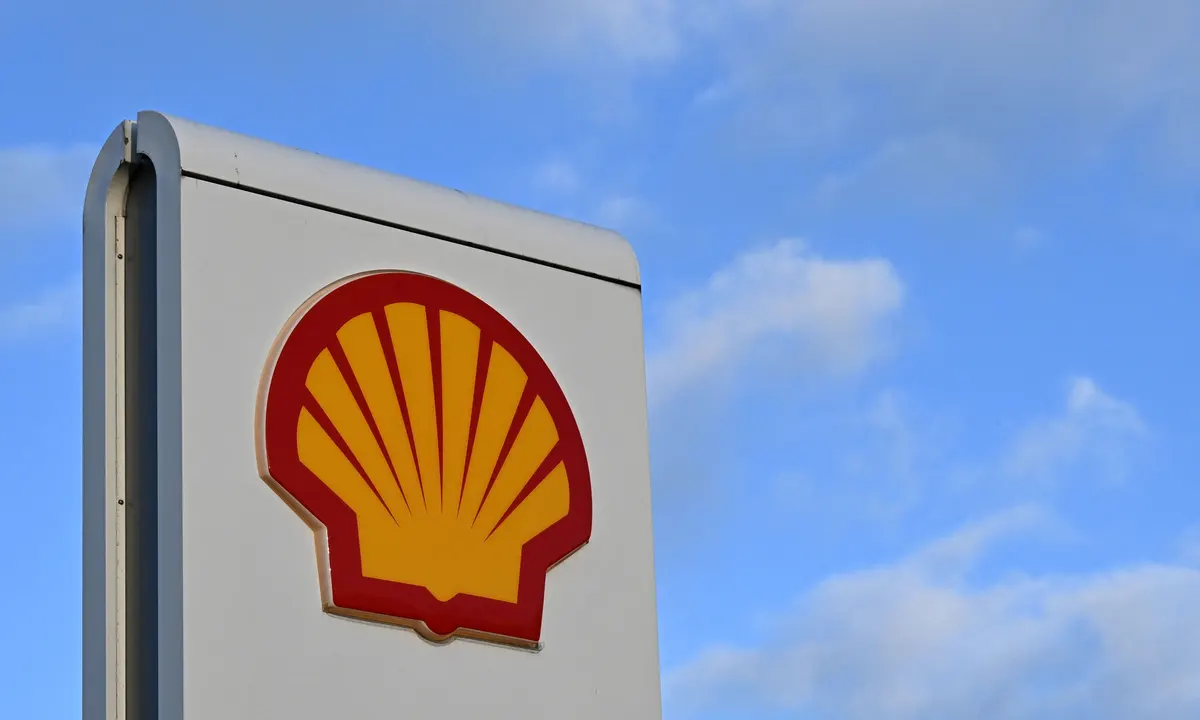Shell, officially known as Royal Dutch Shell, is a global energy and petrochemical company headquartered in The Hague, Netherlands, with its registered office in London, United Kingdom. Founded in 1907 through the merger of the Royal Dutch Petroleum Company and the Shell Transport and Trading Company, Shell has grown into one of the largest publicly traded energy corporations in the world. The company’s iconic logo, a stylized scallop shell, is recognized globally, symbolizing its long-standing presence and influence in the energy sector.
Shell’s core businesses encompass the exploration, production, refining, and marketing of oil and natural gas, as well as the manufacturing and marketing of chemicals. Over the years, Shell has expanded its portfolio to include renewable energy sources, such as wind and solar power, reflecting its commitment to transitioning towards a more sustainable energy future. The company’s integrated approach to energy production ensures that it remains a key player in meeting the world’s growing energy demands while addressing environmental concerns.
In recent years, Shell has made significant strides in advancing its sustainability agenda. The company has set ambitious targets to achieve net-zero emissions by 2050, aligning with global efforts to combat climate change. This involves investing in low-carbon technologies, enhancing energy efficiency, and promoting the adoption of electric vehicles. Shell’s efforts to reduce its carbon footprint are evident in its initiatives to develop hydrogen as a clean energy source and its involvement in various carbon capture and storage projects.
Shell’s global operations span over 70 countries, employing around 87,000 people. The company’s extensive network of service stations, pipelines, and refineries ensures a steady supply of energy products to consumers and businesses worldwide. Shell’s commitment to operational excellence and safety has earned it a reputation for reliability and trustworthiness in the energy industry. Moreover, Shell’s research and development efforts continue to drive innovation, fostering advancements in energy technologies and processes.
Community engagement and corporate social responsibility are integral to Shell’s business strategy. The company actively supports educational programs, environmental conservation projects, and community development initiatives in the regions where it operates. By fostering strong relationships with stakeholders and investing in the well-being of local communities, Shell aims to create shared value and contribute to sustainable development. This holistic approach underscores Shell’s dedication to not only delivering energy but also making a positive impact on society.
Shell’s Top Competitors and Alternatives
Shell, being a major player in the global energy and petrochemical sector, faces significant competition from other multinational corporations. These competitors, often with equally extensive operations and influence, contribute to the dynamic and competitive landscape of the energy industry. Here are some of Shell’s top competitors and alternatives
1. ExxonMobil
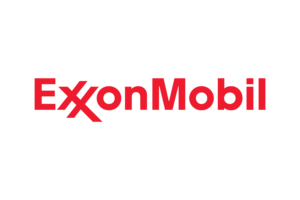
ExxonMobil and Shell are two of the largest and most influential companies in the global oil and gas industry, directly competing across various sectors. ExxonMobil operates in over 60 countries and reported revenues of approximately $344.6 billion in 2023, while Shell, with a presence in more than 70 countries as well, reported revenues of around $316.62 billion. This demonstrates their significant market presence and financial strength. In terms of oil production, ExxonMobil produced about 1.3 million barrels of oil equivalent per day (boepd), whereas Shell’s production was at around 3.7 million boepd. This close competition in production capacity highlights their rivalry in securing and developing oil and gas reserves, making them formidable competitors in the upstream sector.
Both companies are also heavily invested in the transition to renewable energy, further intensifying their competition. ExxonMobil has announced plans to invest more than $15 billion by 2027 in initiatives to lower greenhouse gas emissions, including carbon capture and storage and hydrogen production. Shell, on the other hand, has committed to spending $2-3 billion annually on renewable energy and aims to become a net-zero emissions energy business by 2050. These investments indicate a strategic shift towards sustainable energy solutions, with both companies vying to lead the market in cleaner energy technologies. Their competitive efforts in renewable energy reflect their broader strategies to adapt to global energy transitions and meet increasing regulatory and societal demands for sustainable practices.
In the retail sector, both ExxonMobil and Shell operate extensive networks of service stations worldwide, further demonstrating their direct competition. ExxonMobil has around 21,000 service stations globally, while Shell operates about 47,000 stations, making it one of the largest retail fuel networks in the world. This vast retail presence allows them to compete for market share in fuel sales, convenience retailing, and customer loyalty programs. Additionally, both companies are leveraging their retail networks to support the transition to electric vehicles by installing EV charging points, integrating renewable energy sources, and enhancing customer services. Their extensive retail networks and strategic investments in cleaner energy solutions underscore the ongoing competition between these two energy giants as they navigate the evolving energy landscape and strive to maintain their leadership positions.
2. BP (British Petroleum)
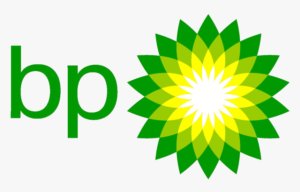
BP and Shell are two of the largest oil and gas companies in the world, competing fiercely in the global energy market. BP, with its headquarters in London, is the world’s second-largest energy company, while Shell, headquartered in the Netherlands, is the third-largest. Both companies have significant operations globally, with BP producing 3.2 million barrels per day and Shell producing 3.2 million barrels of oil equivalent per day. This parity in production capacity highlights their direct competition in securing and developing oil and gas reserves, making them formidable rivals in the upstream sector.
In terms of financial performance, BP leads Shell in several key areas. BP has a higher average refinery size, with a global refining quality that surpasses Shell’s. Additionally, BP’s underlying net income, cash from operations, and market capitalization are all higher than Shell’s. BP’s share price has also been more resilient, with a 5-year growth rate of 0.2% compared to Shell’s 4.6% rise. This financial strength gives BP an advantage in terms of its ability to invest in research and development, which is critical for the energy industry’s future. These financial metrics indicate BP’s robust market position and capacity to fund innovations and strategic initiatives.
Despite these differences, both companies face significant challenges in the competitive energy market. The recent oil reserve scandal has weakened Shell’s position compared to BP. BP’s dominance in the oil-driven energy market is being challenged by the growing demand for renewable energy. Shell, on the other hand, has been more successful in its transition to renewable energy, with a stronger track record in project management and technical expertise. However, BP’s financial resources and market presence give it an edge in terms of its ability to invest in alternative energy and maintain its market share. This dynamic showcases the ongoing competition between BP and Shell as they adapt to the evolving energy landscape and strive to balance traditional oil and gas operations with renewable energy advancements.
3. Chevron
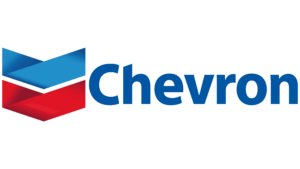
Chevron is a significant competitor of Shell in the global energy market. Both companies are major players in the oil and gas industry, with Chevron being one of the largest American oil and gas companies and Shell being a multinational oil and gas conglomerate. Chevron operates in various business activities, including exploration, production, refining, marketing, and distribution of oil and natural gas. This extensive portfolio allows Chevron to compete with Shell in multiple segments of the energy market, highlighting their rivalry in both upstream and downstream operations. Chevron’s refining capacity is also substantial, with a global refining quality that rivals Shell’s. Chevron’s refining capacity is around 1.8 million barrels per day, which is comparable to Shell’s refining capacity of 1.6 million barrels per day.
Chevron’s financial performance is comparable to Shell’s. Chevron’s market capitalization is around $280.9 billion, which is way higher than Shell’s market capitalization of $172.1 billion. Chevron’s refining capacity is also substantial, with a global refining quality that rivals Shell’s. In upstream operations, both companies are heavily involved in the exploration and production of crude oil and natural gas, making this a key area of competition. Additionally, Chevron’s commitment to sustainability and renewable energy aligns with Shell’s efforts to transition to cleaner energy sources, indicating a competitive drive in leading the market toward more sustainable energy practices.
Chevron’s global presence and strategic alliances further enhance its competitive edge. Chevron has operations in over 180 countries and employs around 45,600 people globally. Chevron’s partnerships with other energy companies, such as BP and TotalEnergies, demonstrate its ability to collaborate and adapt to the evolving energy landscape. Chevron’s focus on innovation and technology also allows it to stay competitive with Shell, which is known for its dedication to innovation and continuous investment in R&D. These factors underscore the ongoing competition between Chevron and Shell as they navigate the dynamic energy sector and strive to maintain their leadership positions.
4. TotalEnergies
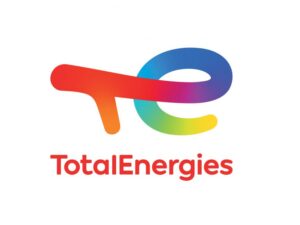
TotalEnergies is a significant competitor of Shell in the global energy market. Both companies are major players in the oil and gas industry, with TotalEnergies being a French multinational energy company and Shell being a multinational oil and gas conglomerate. TotalEnergies has the largest renewables operations among its competitors, including oil and gas exploration, production, refining, and marketing, as well as low-carbon electricity. This extensive portfolio allows TotalEnergies to compete with Shell in multiple segments of the energy market. TotalEnergies’ upstream operations involve exploration and production of crude oil and natural gas, a key area of competition with Shell. TotalEnergies’ refining capacity is also substantial, with a global refining capacity of around 1.8 million barrels per day, which is comparable to Shell’s refining capacity of 1.6 million barrels per day.
TotalEnergies has a strong financial performance, with a market capitalization of $145.6 billion, which is comparable to Shell’s market capitalization of $172.5 billion. This financial strength allows TotalEnergies to invest in research and development, critical for the energy industry’s future. TotalEnergies’ commitment to sustainability and renewable energy aligns with Shell’s efforts to transition to cleaner energy sources. TotalEnergies has set a goal to reduce its greenhouse gas emissions by 20% by 2030 and aims to become carbon neutral by 2050, showcasing its dedication to sustainable energy practices and long-term environmental goals.
TotalEnergies has a global presence and strategic alliances that further enhance its competitive edge. TotalEnergies has operations in over 180 countries and employs around 100,000 people globally. TotalEnergies’ partnerships with other energy companies, such as SunPower, demonstrate its ability to collaborate and adapt to the evolving energy landscape. TotalEnergies’ focus on innovation and technology also allows it to stay competitive with Shell, known for its dedication to innovation and continuous investment in R&D. TotalEnergies has invested heavily in digital technologies, such as artificial intelligence and data analytics, to improve operational efficiency and reduce costs. Its commitment to sustainability and renewable energy is reflected in its goals to reduce greenhouse gas emissions by 20% by 2030 and become carbon neutral by 2050, underscoring the ongoing competition between TotalEnergies and Shell as they navigate the dynamic energy sector and strive to maintain their leadership positions in both traditional and renewable energy markets.
5. Eni

Eni, the Italian multinational oil and gas company, is a significant competitor of Shell in the global energy market. Both companies are prominent in the exploration, production, refining, and marketing of oil and natural gas, as well as in the manufacturing and marketing of chemicals. Eni’s upstream operations, which include the exploration and production of crude oil and natural gas, are a crucial area of competition with Shell. Eni’s refining capacity is noteworthy, with global refining quality that stands shoulder to shoulder with Shell’s. Eni has a refining capacity of approximately 1.4 million barrels per day, compared to Shell’s more substantial 1.6 million barrels per day. This disparity in refining capacity underscores the different scales at which these companies operate, contributing to the competitive dynamics in the downstream market.
Eni’s financial performance is also notable when compared to Shell’s. Eni’s market capitalization stands at around $80.8 billion, which is less than Shell’s $172.5 billion. Despite these differences, Eni’s strong financial position allows it to invest significantly in research and development, essential for future industry innovations. Eni’s commitment to sustainability and renewable energy is in line with Shell’s efforts to shift towards cleaner energy sources. Eni aims to reduce its greenhouse gas emissions by 20% by 2030 and achieve carbon neutrality by 2050, reflecting its long-term dedication to environmental sustainability.
Eni’s extensive global presence and strategic alliances further bolster its competitive position. With operations in over 70 countries and approximately 30,000 employees worldwide, Eni is well-positioned in the global market. Eni’s partnerships with other energy giants, including collaborations with Shell, showcase its ability to adapt and thrive in the evolving energy landscape. For example, Eni’s strategic alliance with TotalEnergies highlights its collaborative approach. These strategic investments and alliances underscore the intense competition between Eni and Shell as they navigate the rapidly changing energy sector, balancing traditional oil and gas operations with advancements in renewable energy.
6. ConocoPhillips

ConocoPhillips is a significant competitor of Shell in the global energy market, particularly in the upstream segment of the oil and gas industry. Both companies are heavily involved in the exploration, production, and marketing of oil and natural gas. ConocoPhillips operates in over 15 countries, focusing on high-margin production and maintaining a strong presence in key regions such as North America, Europe, Asia, and Australia. In 2023, ConocoPhillips produced approximately 1.8 million barrels of oil equivalent per day (boepd), which, while lower than Shell’s 1.6 million boepd, still marks a substantial contribution to global oil supply. This significant production capacity places ConocoPhillips in direct competition with Shell in the upstream sector.
Financially, ConocoPhillips holds a strong position, with a market capitalization of around $127.6 billion, which is robust compared to Shell’s $172.6 billion. ConocoPhillips’ financial health allows it to invest heavily in new exploration projects and technological advancements, crucial for maintaining competitiveness in the energy sector. Additionally, ConocoPhillips focuses on optimizing its asset portfolio and enhancing operational efficiency, which are essential strategies for competing with a diversified energy giant like Shell.
ConocoPhillips is also advancing its commitment to sustainability and reducing its environmental footprint, aligning with global trends and regulatory pressures towards cleaner energy. While Shell has committed to becoming a net-zero emissions energy business by 2050 and invests $2-3 billion annually in renewable energy, ConocoPhillips is also making strides in this area. ConocoPhillips has set ambitious targets to reduce its greenhouse gas emissions intensity by 35-45% by 2030 and is investing in low-carbon technologies and projects. These include carbon capture and storage (CCS) and investments in renewable energy sources. This strategic focus on sustainability highlights the ongoing competition between ConocoPhillips and Shell as both companies strive to adapt to the evolving energy landscape and meet global demand for more sustainable energy solutions.
7. Equinor
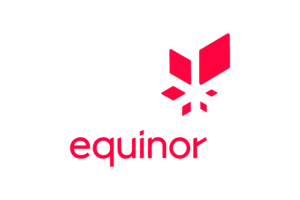
Equinor, the Norwegian multinational energy company, is a significant competitor of Shell in the global energy market. Both companies are major players in the exploration, production, refining, and marketing of oil and natural gas. Equinor, formerly known as Statoil, has a strong presence in over 30 countries, focusing on high-value production areas such as the North Sea, North America, and Brazil. In 2023, Equinor produced approximately 2 million barrels of oil equivalent per day (boepd), which, while lower than Shell’s 1.8 million boepd, still represents a substantial share of the global market. This considerable production capacity underscores Equinor’s competitiveness in the upstream sector, where it directly rivals Shell.
Financially, Equinor is a formidable competitor with a market capitalization of around $81.57 billion, compared to Shell’s $172.6 billion. Equinor’s strong financial performance enables it to invest heavily in new exploration projects and technological advancements, which are critical for maintaining its competitive edge. Additionally, Equinor’s focus on cost efficiency and strategic asset management helps it compete effectively with a diversified energy giant like Shell.
Equinor is also a leader in the transition to renewable energy, which is a key area of competition with Shell. Equinor aims to reduce its net carbon intensity by 50% by 2050 and is investing significantly in offshore wind, solar power, and carbon capture and storage (CCS) projects. Equinor’s Hywind Scotland, the world’s first floating wind farm, and its major offshore wind projects in the North Sea highlight its leadership in renewable energy. This strategic focus on sustainability and innovation underscores the ongoing competition between Equinor and Shell as both companies navigate the evolving energy landscape and strive to meet global demand for cleaner energy solutions.
These competitors, along with others in the energy sector, contribute to a highly competitive environment. Each company is striving to balance traditional fossil fuel operations with investments in renewable energy and sustainability initiatives, reflecting the broader industry trend towards a more sustainable and diversified energy future.
Also Read: Top Chevron Competitors and Alternatives
To read more content like this, subscribe to our newsletter

